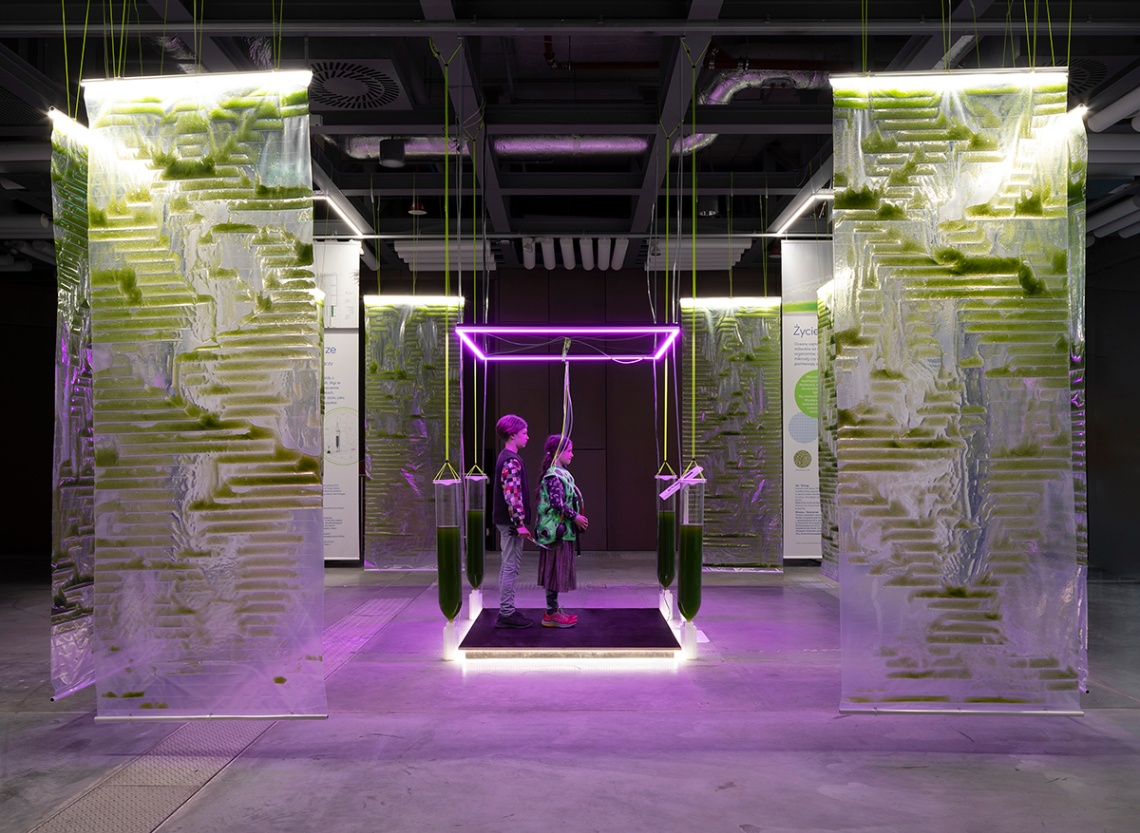Can a Playground Help Clean the Air?
In Warsaw, a new kind of public space merges play with air purification. This playground cleans the air while providing fun, healthy outdoor activity.
Photo source:
Ecologicstudio
Launched as a prototype in Warsaw and later installed in locations like Abu Dhabi and London, AirBubble integrates algae-based bioreactors into a soft architectural form. The core idea is to use microalgae to clean polluted urban air by absorbing CO₂ and particulate matter while releasing oxygen.
What sets AirBubble apart is its approach. Instead of building passive green spaces or deploying heavy mechanical filters, it introduces an active, living system that reacts and adapts to environmental conditions.
The structure is made from an inflatable membrane, enclosing 52 glass bioreactors filled with living microalgae. These tiny organisms photosynthesize, helping reduce air pollutants and carbon levels in real-time.

Where Design Meets Public Health
AirBubble is not just a technical installation—it’s designed for community use, especially for children. It doubles as a public play space, merging clean air generation with an engaging, educational experience. The aim is to promote environmental awareness and healthy behavior in a format that feels natural and enjoyable.
The circular pavilion maintains air quality inside that meets WHO clean air standards, even in cities with high pollution. It works autonomously, adjusting lighting, airflow, and microalgae growth based on local conditions.

Key Benefits of AirBubble
-
Cleans the air through biological photosynthesis
-
Engages communities with sustainable design
-
Educates children in a playful and interactive way
-
Adapts to different urban environments and climates
-
Promotes circular economy using locally sourced and recyclable materials
A Vision for Greener Cities
AirBubble is part of a broader movement to reimagine urban living using nature-based solutions. As cities face increasing pollution and environmental stress, innovations like this represent a scalable, human-centered model for integrating clean air infrastructure into everyday life.
EcologicStudio's work with AirBubble proves that sustainability doesn't have to be invisible or industrial—it can be tactile, interactive, and even fun.
You have exceeded your free limits for viewing our premium content
Please subscribe to have unlimited access to our innovations.